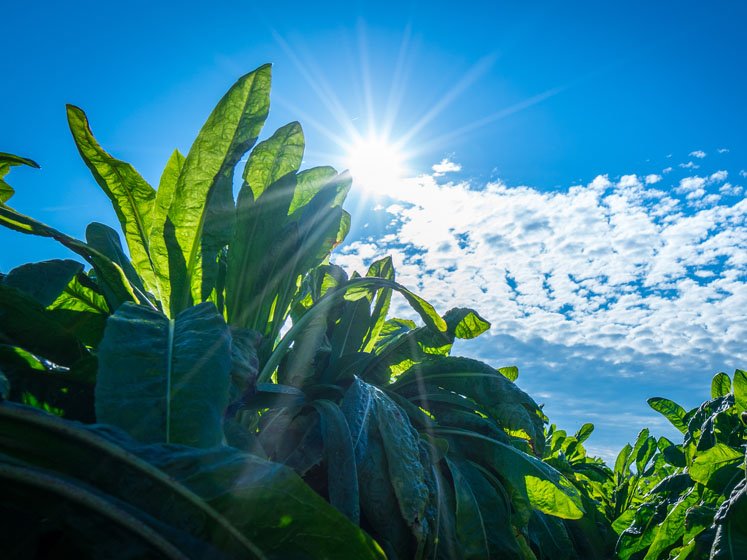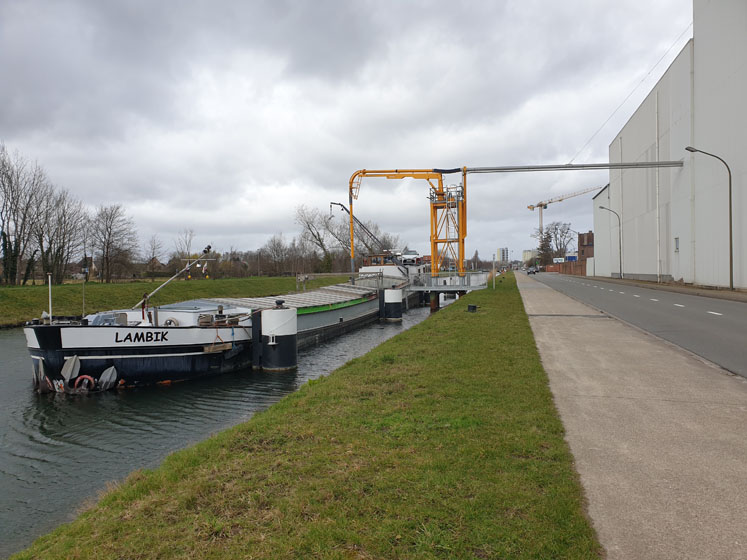Here, Christoph Boettger, Member of the Executive Board at BENEO, discusses the importance of supply chain resilience and the lessons that BENEO has learnt when it comes to sustainability during the past 2 years.
The entire food industry has had to deal with the wider implications of supply chain disruption as a result of the pandemic. Meanwhile, more consumers have come to appreciate the ramifications of their nutritional choices on the planet and what this might mean for future generations to come.
So much so, in fact, that 60% of consumers globally are now being more attentive to the impact that their food and drink has on the environment. So, when it comes to supply chain sustainability and resilience, what lessons have we learnt here at BENEO that could benefit the wider food industry?
Communication is key
With the ever-evolving side-effects of the pandemic, we have experienced a higher overall demand for our products, as well as significant deviations from original customer-planned volumes.
However, thanks to continuous dialogue with our customers and internal flexibility, we have been able to adapt to ensure that orders have been fulfilled. This shift has required much higher levels of communication with customers to make sure that demand and supply have been continually co-ordinated.

Christoph Boettger
This level of communication can only happen if strong customer relationships have been established; so, investing in this is an essential tool for future supply chain resilience for any company.
With other external and internal stakeholders, we have learnt that swift alignment has been essential to implementing the necessary measures quickly and effectively.
The impact of the pandemic has been mitigated for our business by the timely agreement of various stakeholders on the best way to proceed, helping us to define, decide and act promptly.
For us, this has included monitoring the different national rules and regulations to allow us to develop strategies for both our local and global functions. We have also benefited from having defined crisis teams at a global and local level.
The way these teams are intertwined greatly reduces the effort required to align our business activities whilst maximising the effectiveness of the measures we implemented.
Have a multiple inbound supply strategy
To secure the ongoing supply of raw materials for our factories, extant multiple supplier and raw material stock management strategies have proven to be resilient.
This has meant that even despite disruptions to the global supply chains, we have been able to mitigate any potential delays and compensate for any interruptions when needed.
This approach has helped us to overcome situations such as the temporary export limitations introduced by some rice exporting countries. However, even with this strategy in place, we have been affected by the global freight market disruption that has resulted in a shortage of available capacity and higher costs across the industry.
The fact that harbours and the availability of container ship capacity were, and continue to be, restricted by the pandemic, combined with the effects on the global economy and trade, also meant additional efforts have had to be made behind the scenes, which demands more flexibility and meticulous planning from our teams across the globe.
Be prepared for what’s coming next
When it comes to supply chain management, it’s important to always be looking ahead and be prepared for what’s coming next. For us, this has meant being able to demonstrate a sustainable supply chain.
More and more of our customers are asking to see our sustainability credentials. And it’s not just customers who want to know more, existing and potential employees, investors and other stakeholders are also increasingly viewing companies through this lens.
However, creating a more sustainable supply chain requires a combined effort, as no single company or organisation can do this without the commitment of a wide range of stakeholders — including governments, authorities, communities and, of course, other companies.
Although we are aware that this is a long-term approach, we feel it is necessary and logical to act accordingly for the benefit of future generations.
Choose long-term sustainability instead of short-term economic benefits
When it comes to building sustainability into a company’s business practices, there can be a tendency to look only at those that deliver short-term economic benefits.

However, as a company that has taken a long-term view to sustainability, building it into our DNA during the past 30 years has proven successful.
As well as being part of our corporate vision, in all we do we aim to ensure that sustainability is not only an “agenda point” when focusing on major strategic topics, but that it also resonates throughout the many smaller issues we deal with on a daily basis. Despite the extra effort this approach requires, it delivers on all levels: financially, socially and environmentally.
Build internal resilience through social sustainability practices
Although environmental goals are prominently mentioned when talking about sustainability, all three sustainability practices — economic, ecological and social — have a major part to play.
One example is the way people interact and communicate. During the past 6 years, we have been continuously working to live up to our corporate values.
As in many organisations, these values now form the “glue” between our functions, locations and hierarchies, and are our long-term principles that, consciously and unconsciously, help us to make decisions and guide how we communicate to the outside world.
They offer a communication framework that our teams can use to raise concerns, tensions and ideas in the spirit of “making things better,” all while helping to form a good basis from which to act, especially in times of crisis.
Continuously striving for improvement
It takes a certain level of creative thinking to build sustainability into an organisation. Here at BENEO, we have made changes to our processes in recent years to improve our sustainability credentials and to reach our goal of achieving carbon neutrality by 2050.
For example, our Agronomy department works closely with our contract farmers to manage the long-term health of their soil and to prevent over-fertilisation or soil exploitation and erosion.
We also reinvest in technology to increase energy efficiency in our factories, so that all the raw material used is subsequently processed as efficiently as possible, avoiding waste. During the past 30 years, we have reduced our energy consumption by 50%. When it comes to water consumption, we have reduced this by more than 45% since 2007 by using cyclical water usage in BENEO’s production facilities when possible.

It is also important to make the most of local infrastructure opportunities when it comes to promoting sustainability. Recently, we made a further investment of €500,000 into waterway transport to help reduce our reliance on road transport.
The project, which has included increasing the unloading capacity at the rice starch plant in Wijgmaal, Belgium, enables us to transport two thirds of our cargo by barge each year.
Road transport emits on average 115 g of carbon dioxide per tonne-km, whereas barge transport generates just 50 g of CO2 per tonne-km. By doubling the volumes transported by water, we have halved the number of truck movements to and from Wijgmaal each year.
This reduces the carbon emissions associated with the inbound transport of rice from the harbour to the plant by 20% annually, contributing to our group-wide sustainability efforts.
Choosing to operate sustainably leads to challenges and requires efforts; but, in these unpredictable times, when consumers and stakeholders increasingly want companies to prove their sustainability credentials, it makes even more sound business sense. If there is one thing that recent events have shown us all, sustainability is no longer a “luxury” but a global necessity.





